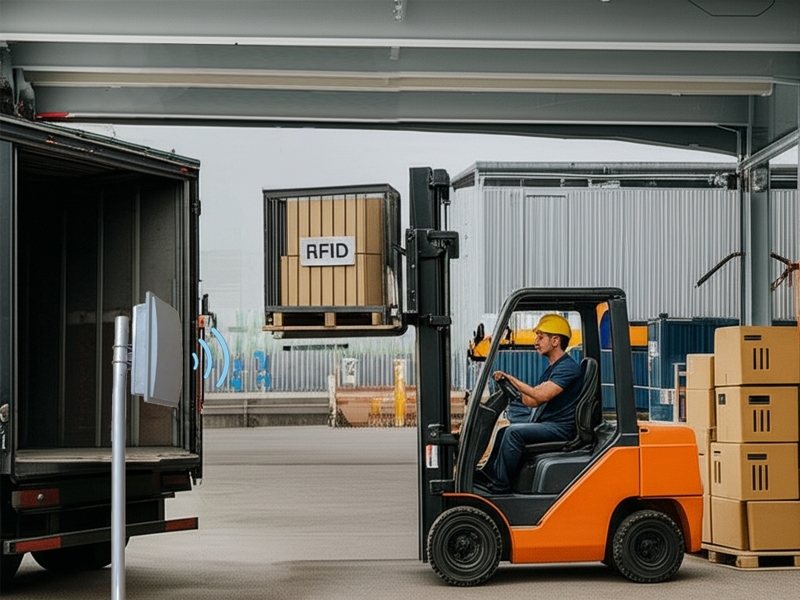Solution
RFID intelligent storage terminal
-
RFID smart cargo terminal
✅ Increased operational efficiency
✅ Accurate storage and cargo tracking
✅ Reduced human errors
✅ Enhanced security
✅ Data analysis and workflow optimization
Example: A well-known optoelectronics compang
Most port operations still rely on manual identification and barcode scanning for inbound and outbound cargo management, which is laborious. By introducing RFID technology into port operations, we can save manpower, simplify workflow, and accurately identify cargo in real time, paving the way for smarter port management.
Examlpe: A well-known optoelectronics company.
Increased operational efficiency:
RFID technology enables automated cargo identification during port entry and exit. As cargos pass through gates, readers automatically scan their RFID tags, eliminating the need for manual scanning or recording. This greatly reduces operation time, and significantly boosts efficiency.
Accurate storage and cargo tracking:
Each cargo or container RFID tag, is instantly recorded by the system when entering or leaving the port. This allows logistics managers to track the exact location and status of cargos in real time, ensuring accurate storage management and cargo tracking while preventing loss or misdelivery.
Reduced human errors:
Automated RFID systems minimize the need for manual stocktaking and recording, and reduce human errors in the same time. This improves data accuracy and reliability.
Enhanced security:
RFID systems can be integrated with access control system and surveillance equipment so only authorized cargo can move in and out of specific areas. This helps prevent cargo theft or tampering, enhancing overall port security.
Data analysis and workflow optimization:
The data collected by RFID system provides valuable analytical data for managers. By analyzing these data, they can workflow bottlenecks, optimize cargo flow, estimate demand, and make better operational decisions, continuously improving logistics processes.

- Headquarters:
- EPC Solutions Taiwan Inc.
- ADD.:3F, No. 49-3, Ln. 2, Sec. 2, Guangfu Rd., East Dist., Hsinchu City 300044, Taiwan (R.O.C.)(Durban Smart Building 1st Phase,Building C)
- TEL:+886-3-5786361
- FAX:+886-3-5771491
- E-mail:julia@epcsi.com.tw
- Hong Kong Branch:
- Sunbest Technology Company Ltd.
- ADD.:Unit B1, 3/F., Mai Shun Industrial Building, 18-24 Kwai Cheong Road, Kwai Chung, N.T., H.K.
- TEL:+852-27702330
- FAX:+852-23886226
- EMAIL:tammy@sunbesttech.com.hk
- Product
- semiconductor tag
- RFID Reader
- RFID Reader Module
- RFID Wristband
- RFID Keyfob
- RFID Tag
- RFID Lock
- RFID 134.2Khz
- RFID 2.45Ghz Product
- RFID Antenna
- Others
- Solution
- RFID Indoor Positioning
- Semiconductor Packaging Pick-and-Place Machine Mat
- RFID smart retail
- RFID production line profile
- RFID baggage management
- RFID product security
- RFID tire management
- RFID Smart Cloud Data Center
- RFID smart healthcare
- RFID intelligent storage terminal
- RFID surveillance System
- RFID Culture and Art
- RFID archives management
